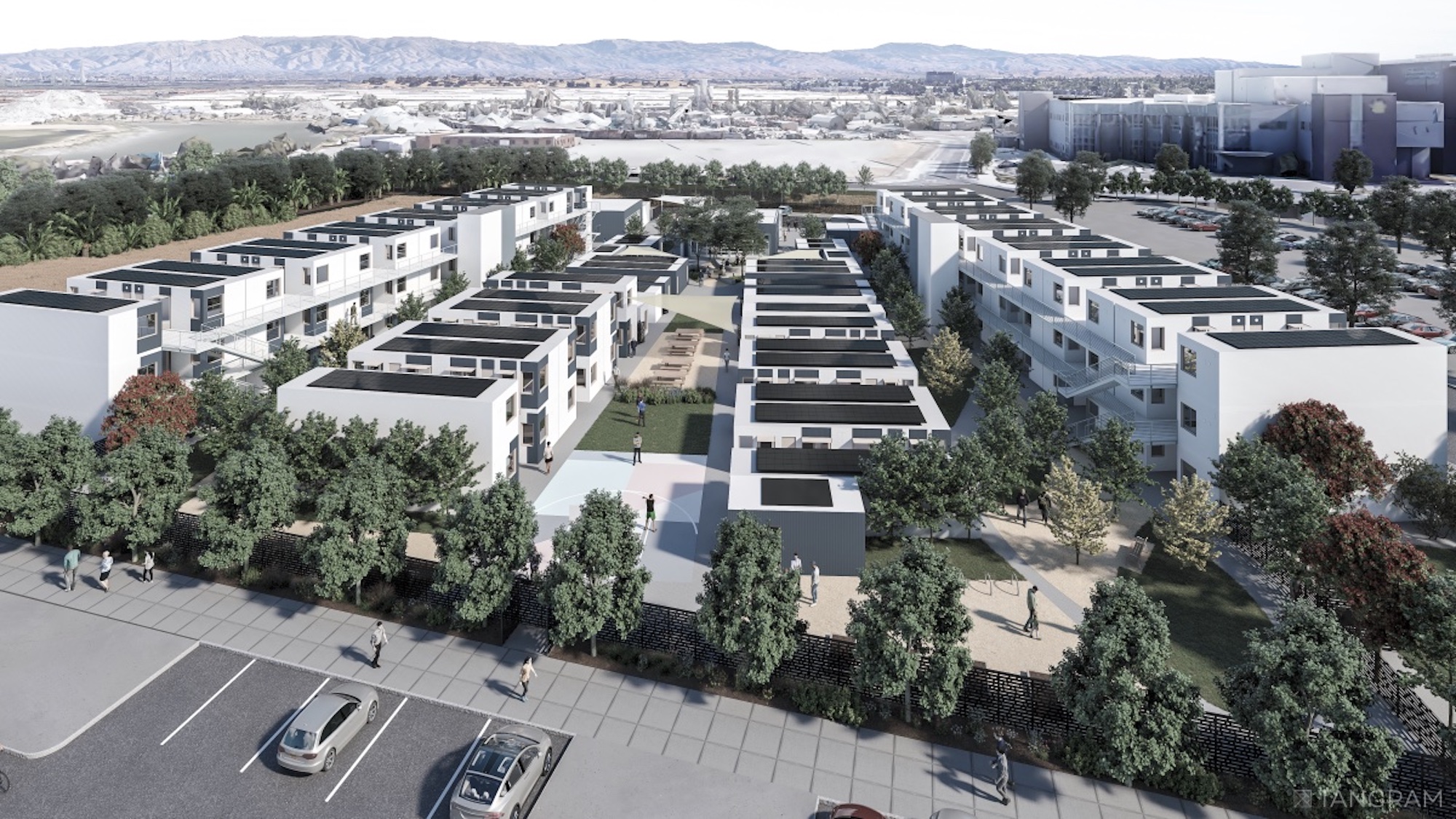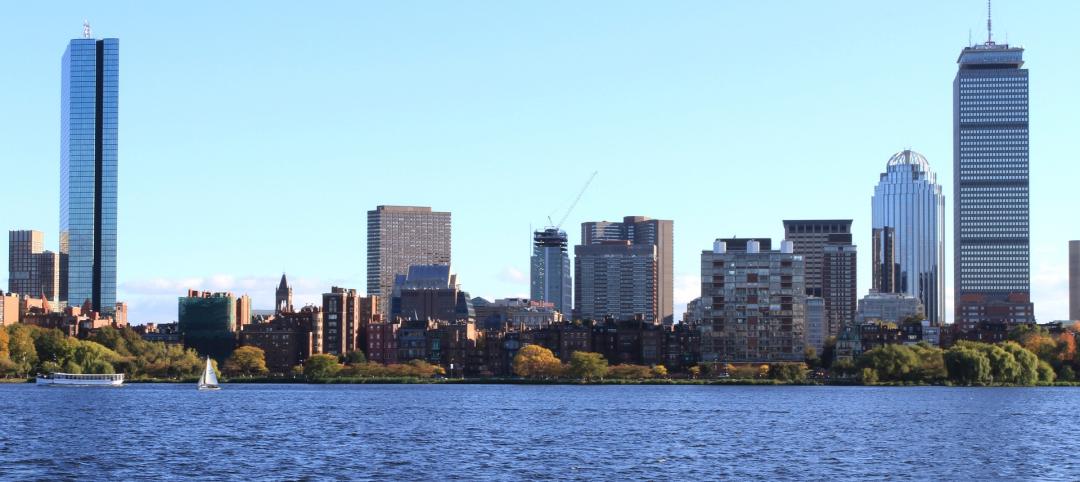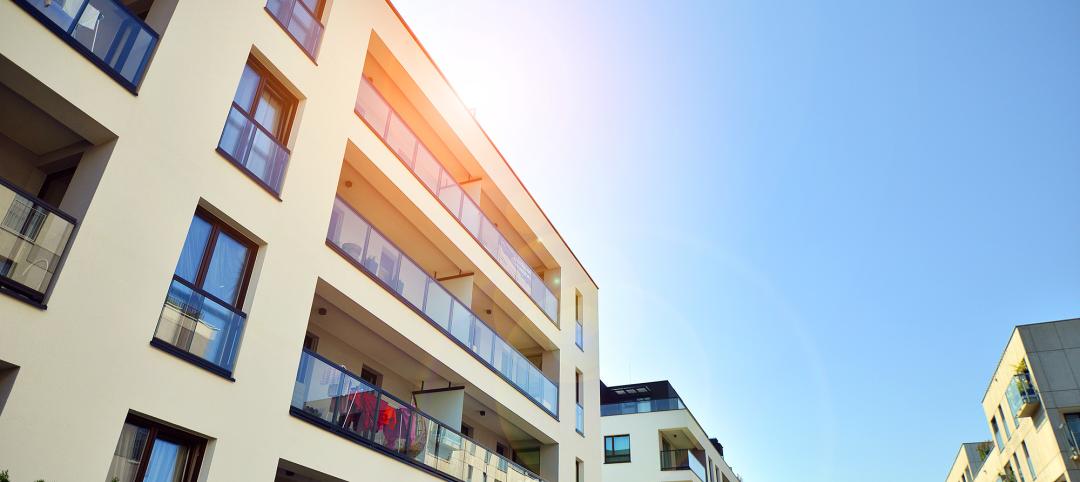A novel solution to homelessness will open soon in Redwood City, Calif. The San Mateo County Navigation Center is a compact residential campus that employs modular units to create individual sleeping units, most with private bathrooms. The 240 units of housing will be accompanied by shared services and community spaces. Instead of the congregate dorm-style shelters found in many U.S. cities, this approach gives each resident a private, lockable, conditioned sleeping space.
The project's architect, Charles F. Bloszies, FAIA, calls the design concept the "Step1” interim supportive housing system. “This idea is novel, but not experimental,” he says. “It stems from listening to unhoused people themselves and the social service providers who have devoted their careers to taking on one of society’s most intractable problems: homelessness.”
Metrics from studies by social service groups, including Menlo Park-based LifeMoves, operator of the facility, show this type of supportive setting works very well, with average resident stays of three to six months. The project has been developed and managed by the San Mateo County Project Development Unit (PDU) under a design-build contract employed for all construction undertaken by the county.
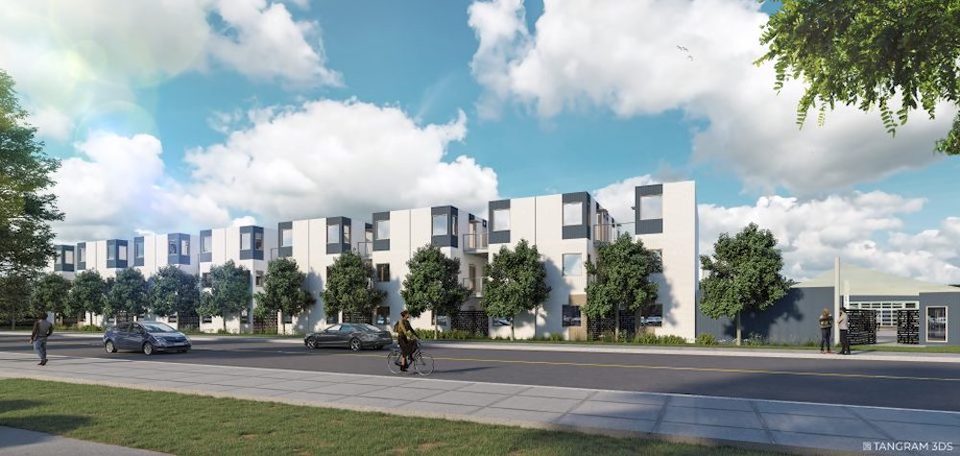
According to San Mateo County’s last count, over 1,500 people there are homeless. Redwood City determined that in early 2022 over 100 unhoused people lived in 25 encampments. About half of those unhoused people told city officials they became homeless during the pandemic.
The new Redwood City solution is hailed as “revolutionary” by County Executive Officer Michael Callagy, who said, “This will change the face of homelessness in our county. This is a tremendous opportunity to help our entire community by ensuring that every homeless individual who wants shelter can find it and is treated with dignity and respect. These are real people with real issues and these funds will change lives.
For a prior 100-unit project in Mountain View, Calif., also designed by the Office of Charles F. Bloszies, FAIA, Gov. Gavin Newsom said it “is exactly the kind of project that needs to be replicated, using modular prefabricated buildings that can be stood up at blazing fast speeds and at a fraction of the cost of normal housing.”
On the project team:
Owner and/or developer: San Mateo County Project Development Unit (PDU)
Design architect: the Office of Charles F. Bloszies FAIA
Architect of record: the Office of Charles F. Bloszies FAIA
MEP engineer: Meyers+ Engineers (design)
Structural engineer: the Office of Charles F. Bloszies FAIA
General contractor/construction manager: XL Construction
Modular subcontractor/vendor: Silver Creek Industries
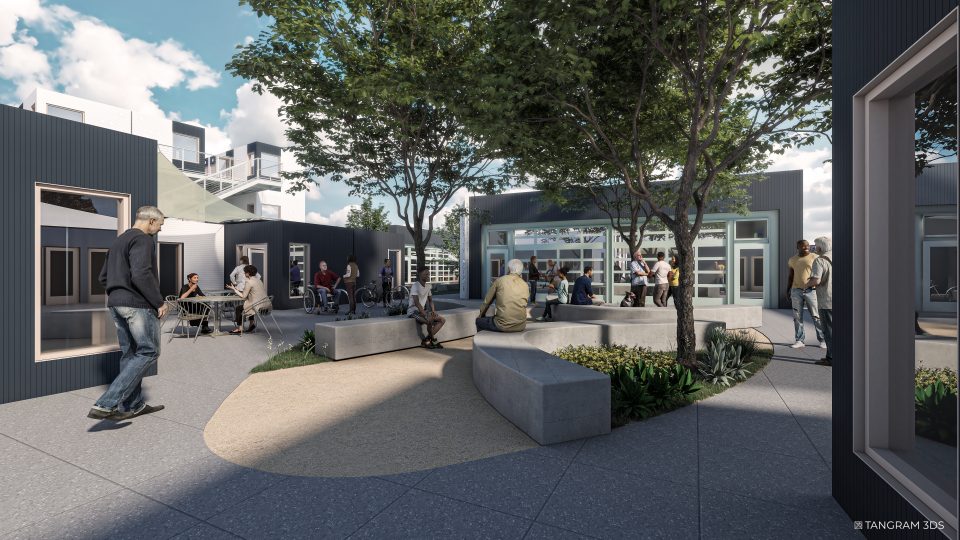
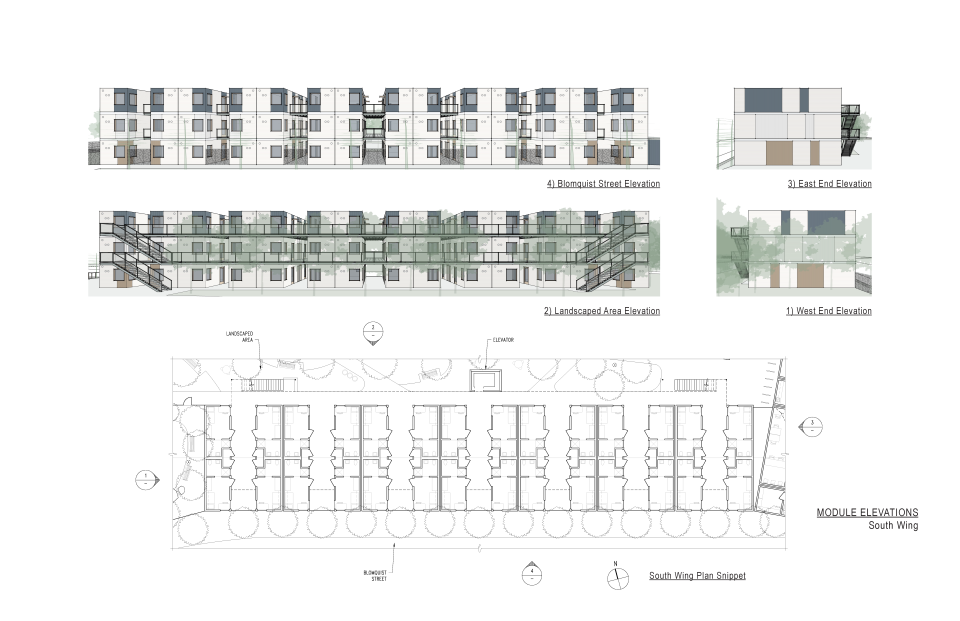
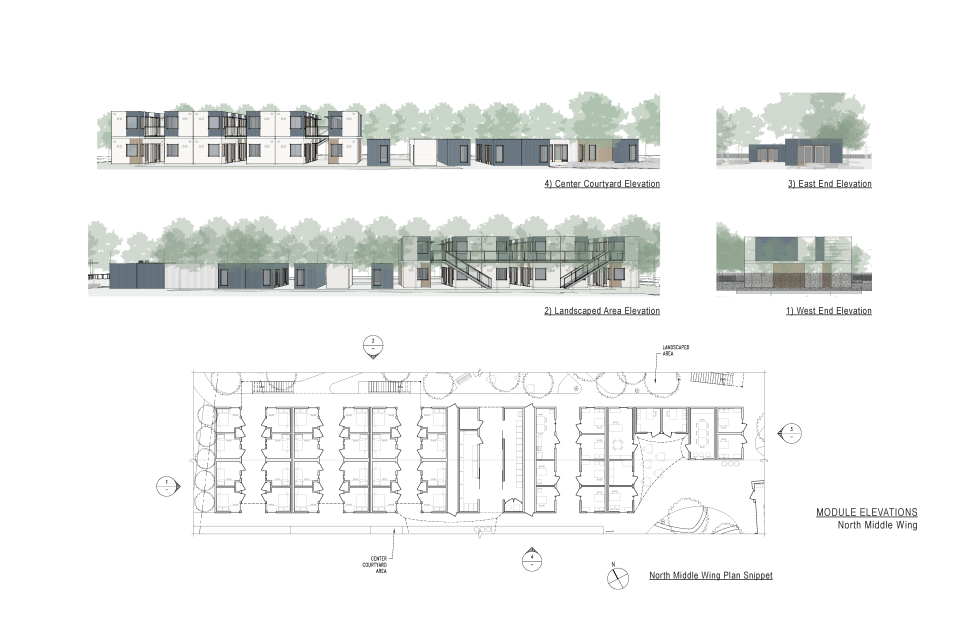
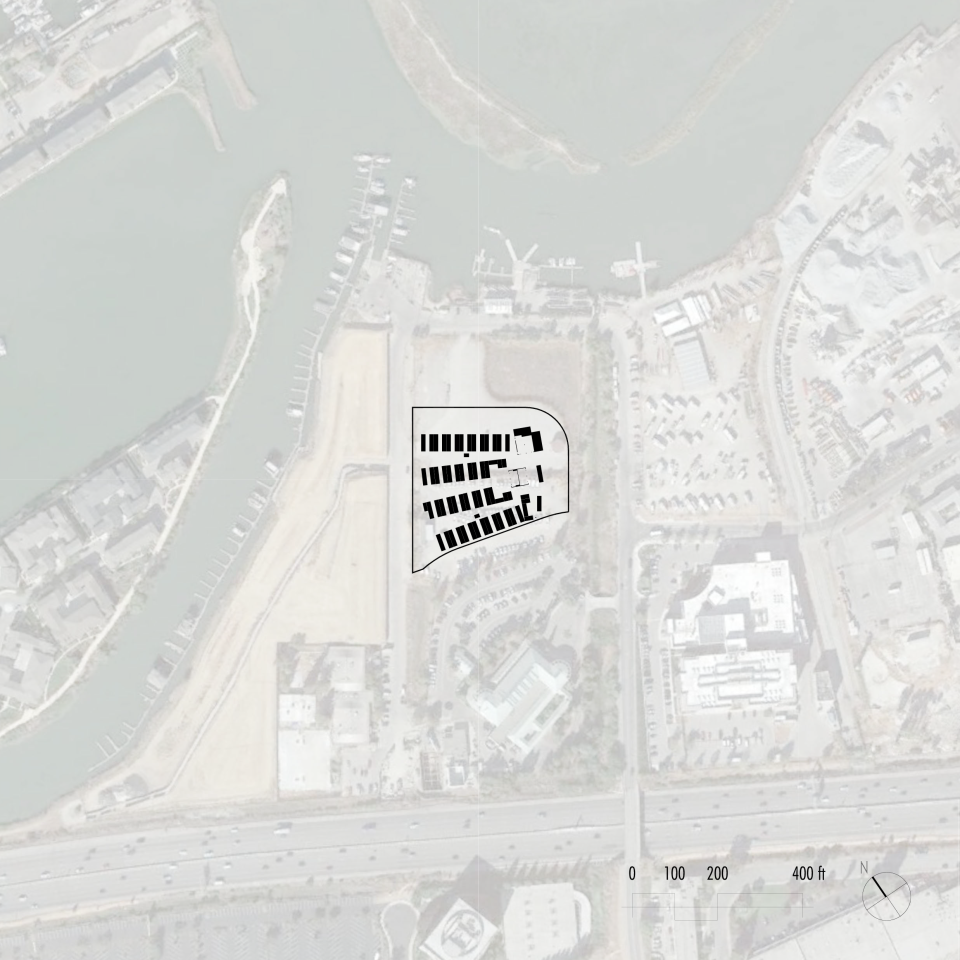
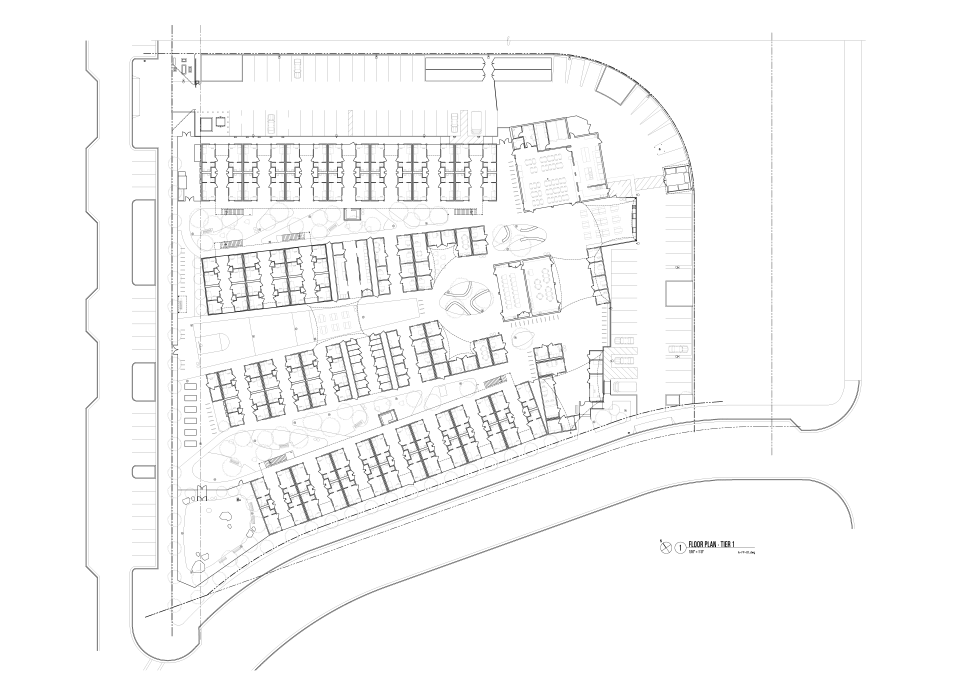
Related Stories
Mixed-Use | Oct 7, 2024
New mixed-use tower by Studio Gang completes first phase of San Francisco waterfront redevelopment
Construction was recently completed on Verde, a new mixed-use tower along the San Francisco waterfront, marking the end of the first phase of the Mission Rock development. Verde is the fourth and final building of phase one of the 28-acre project that will be constructed in several phases guided by design principles developed by a design cohort led by Studio Gang.
MFPRO+ News | Sep 24, 2024
Major Massachusetts housing law aims to build or save 65,000 multifamily and single-family homes
Massachusetts Gov. Maura Healey recently signed far-reaching legislation to boost housing production and address the high cost of housing in the Bay State. The Affordable Homes Act aims to build or save 65,000 homes through $5.1 billion in spending and 49 policy initiatives.
MFPRO+ News | Sep 23, 2024
Minnesota bans cannabis smoking and vaping in multifamily housing units
Minnesota recently enacted a first-in-the-nation statewide ban on smoking and vaping cannabis in multifamily properties including in individual living units. The law has an exemption for those using marijuana for medical purposes.
The Changing Built Environment | Sep 23, 2024
Half-century real estate data shows top cities for multifamily housing, self-storage, and more
Research platform StorageCafe has conducted an analysis of U.S. real estate activity from 1980 to 2023, focusing on six major sectors: single-family, multifamily, industrial, office, retail, and self-storage.
Mixed-Use | Sep 19, 2024
A Toronto development will transform a 32-acre shopping center site into a mixed-use urban neighborhood
Toronto developers Mattamy Homes and QuadReal Property Group have launched The Clove, the first phase in the Cloverdale, a $6 billion multi-tower development. The project will transform Cloverdale Mall, a 32-acre shopping center in Toronto, into a mixed-use urban neighborhood.
Codes and Standards | Sep 17, 2024
New California building code encourages, but does not mandate heat pumps
New California homes are more likely to have all-electric appliances starting in 2026 after the state’s energy regulators approved new state building standards. The new building code will encourage installation of heat pumps without actually banning gas heating.
Adaptive Reuse | Sep 12, 2024
White paper on office-to-residential conversions released by IAPMO
IAPMO has published a new white paper titled “Adaptive Reuse: Converting Offices to Multi-Residential Family,” a comprehensive analysis of addressing housing shortages through the conversion of office spaces into residential units.
MFPRO+ Research | Sep 11, 2024
Multifamily rents fall for first time in 6 months
Ending its six-month streak of growth, the average advertised multifamily rent fell by $1 in August 2024 to $1,741.
Legislation | Sep 9, 2024
Efforts to encourage more housing projects on California coast stall
A movement to encourage more housing projects along the California coast has stalled out in the California legislature. Earlier this year, lawmakers, with the backing of some housing activists, introduced a series of bills aimed at making it easier to build apartments and accessory dwelling units along California’s highly regulated coast.
MFPRO+ New Projects | Sep 5, 2024
Chicago's Coppia luxury multifamily high-rise features geometric figures on the façade
Coppia, a new high-rise luxury multifamily property in Chicago, features a distinctive façade with geometric features and resort-style amenities. The 19-story, 315,000-sf building has more than 24,000 sf of amenity space designed to extend resident’s living spaces. These areas offer places to work, socialize, exercise, and unwind.


